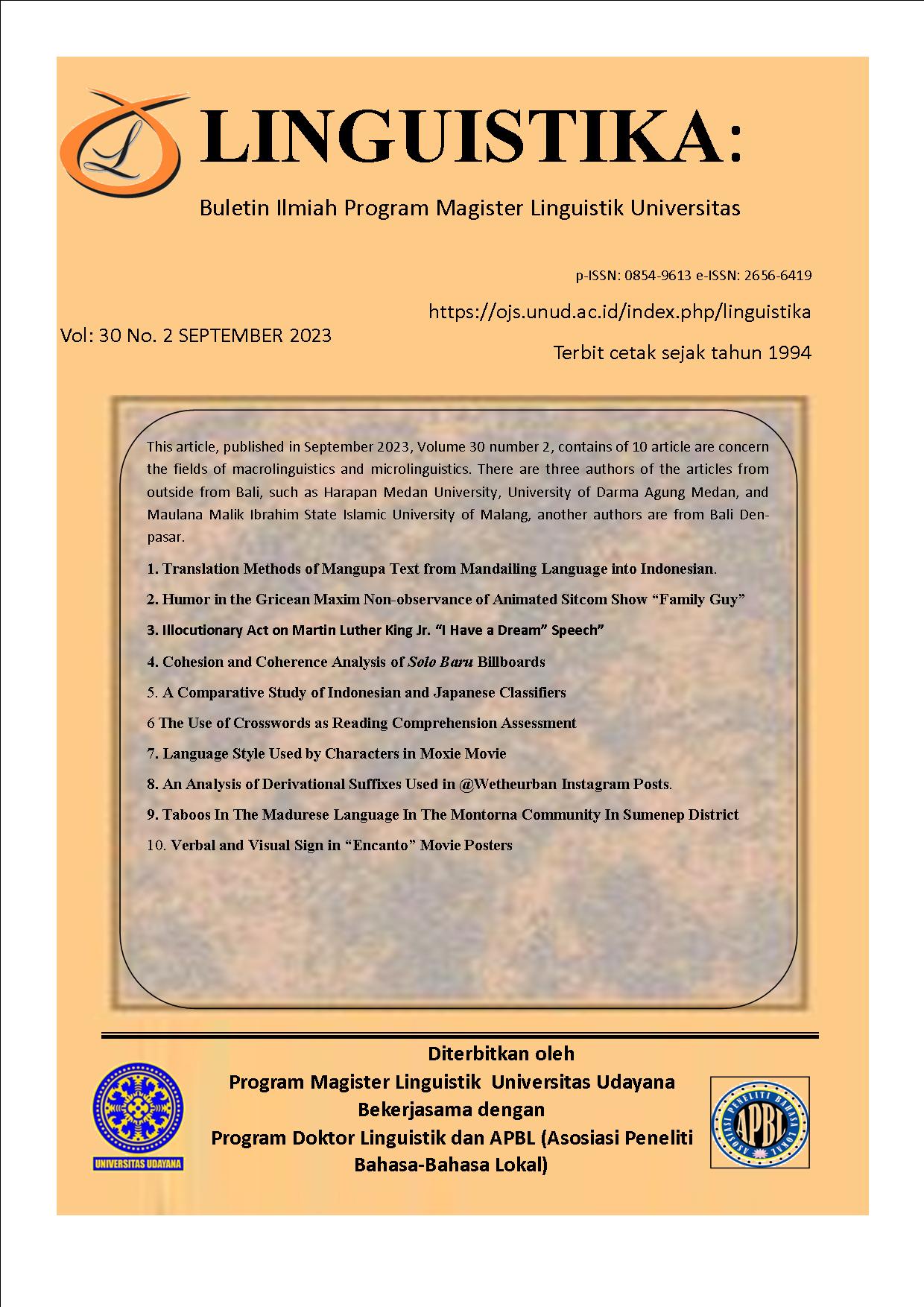The Use of Crosswords as Reading Comprehension Assessment
Abstract
Some literature defined language games as a challenging and creative way to be involved in language teaching and learning. There were some word games commonly used and there is one language game that is challenging to be used namely crossword. This study aims to expose the use of crossword as a reading comprehension assessment. The use of crossword is based on the need for a different and creative way to overcome the complexity of the reading process. The crossword analyzed in this study is part of a legally published coursebook. This study involved 19 students as the participants in the classroom who were requested to answer the questionnaire as one of the instruments in this study. Due to the instruction in the coursebook, the uses of the crossword are as the following (1) begin by reading the passage, (2) observe the space of writing the answer, and last (3) guide the students to understand the questions. A digital questionnaire was also administered to define the students’ opinion of the use of crosswords as a reading comprehension assessment and there was resulted that 70,9% of the students agreed with the use of crosswords as a reading comprehension assessment. Moreover, there was also defined that 84,2% of the students feel excited about doing the crossword. Finally, though teachers or lecturers need the training to create and design crossword but crossword is proven effective to create a communicative, exciting, and interesting situation in reading teaching, and learning.













